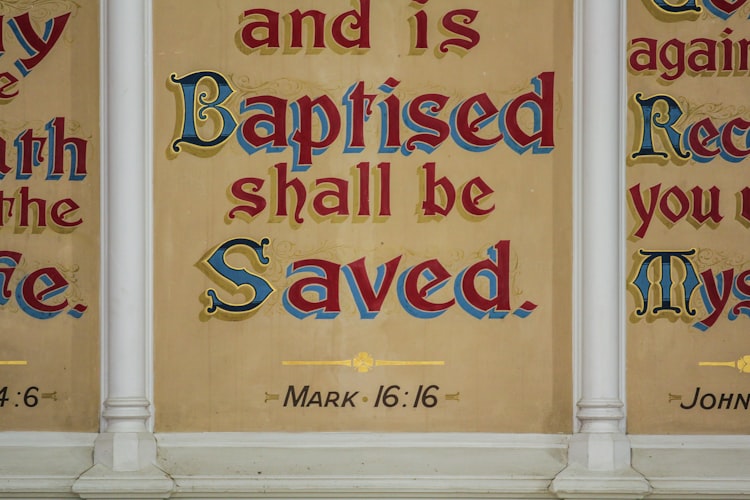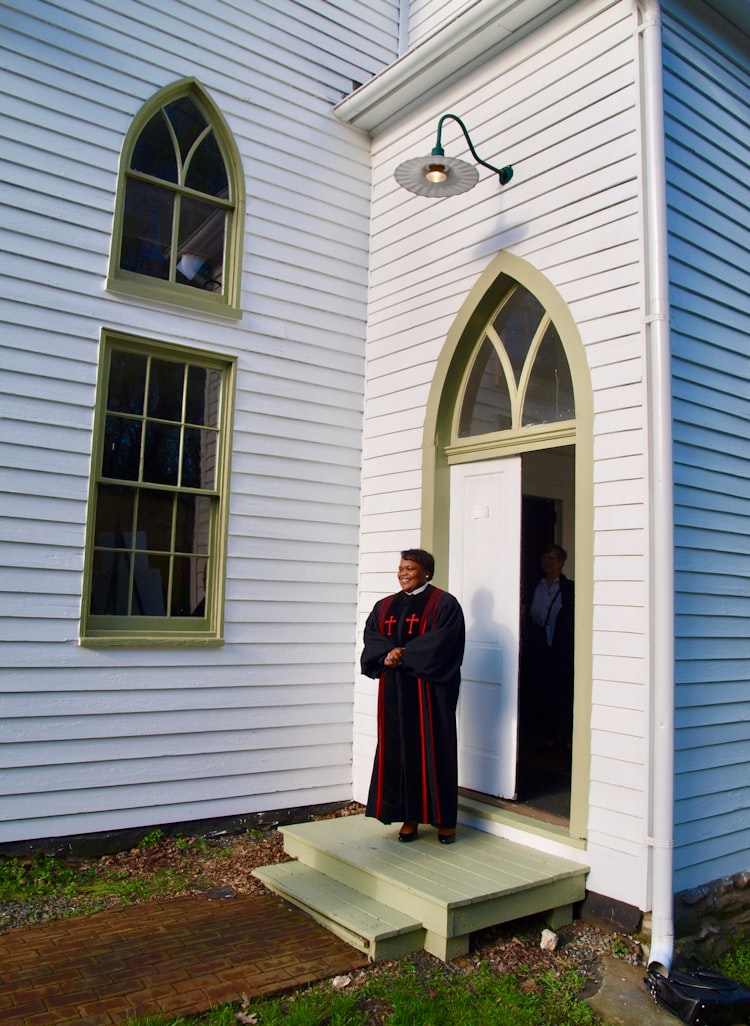We Know When the Son of Man Will Come in His Kingdom
To my friend who asked about Matthew 25 and the Parable of the Virgins—I'm sorry. We're going to get there. I promise. But we have to keep talking about how the second coming was not a topic of Jesus' preaching.
I got a bunch of questions about this last week, and they're all fair, and—to be honest—I've been de- and re-constructing my "end times theology" for about 17 years, and I still don't get it all straight. But let me do my best to try to help.
Jesus Tells Us Exactly When the Son of Man Will Come In His Kingdom
Let's go to Matthew 16:27. Jesus says, "For the Son of Man is going to come in his Father’s glory with his angels, and then he will reward each person according to what they have done."
This sounds like second coming language to most of us. But we have to read the next verse and then ignore the chapter break and keep reading into Matthew 17.
The very next verse says, "Truly I tell you, some who are standing here will not taste death before they see the Son of Man coming in his kingdom.”
So right here, Jesus already puts a time limit on how soon the Son of Man will come in his kingdom. According to Jesus, it's going to happen sometime before the death of his disciples.
Then if you keep reading into Matthew 17, what's the very next story do we get? It's the Transfiguration. Peter, James, and John get led up a mountain with Jesus, and Jesus is changed before them, his face shining like the sun, his clothes as white as light itself.
There it is! That's what Jesus was talking about. The Son of Man coming in his kingdom is happening before the very eyes of Peter, James, and John. And, in fact, the Son of Man coming in his kingdom is the entirety of the incarnation, life, ministry, death, resurrection, and ascension of Jesus—including all the way up to Jesus' prophetic vindication in 70 CE when Jerusalem is destroyed within a generation of his prediction in Matthew 24.
This so-called end times event—"the Son of Man coming in his kingdom"—is not Jesus' talking about the distant future. He's talking about what He is doing in his own lifetime.
This is exactly how Jesus answers the question of the Pharisees in Luke 17:20. They ask when is God's kingdom coming. And Jesus says, "Don’t you see? God’s kingdom is already among you," or other translations say, "in your midst."
Or in Luke 11:20, Jesus says he is not casting out demons by the power of the chief demon Beezelbub. Instead, "If I cast out demons by the power of God, then the kingdom of God has already come upon you."
When Jesus arrived on the scene in the first century, that was the coming of the Son of Man in his kingdom.
So the Sheep and Goats Has Already Happened (Or Is Happening Now)
So, if we skip ahead 8 chapters to Matthew 25, we find the Parable of the Sheep and the Goats. And it's opening line in verse 31 is this:
"When the Son of Man comes in His glory, and all the angels with Him, then He will sit on His glorious throne."
We already know—thanks to Matthew 16—that the Son of Man coming in glory is describing not a future event from Jesus and his disciples' point of view, but what Jesus' life and ministry were all about in their lifetimes.
Therefore the judgment of the nations—represented by the sheep and the goats—is not a description of the end-times final judgment. It's a description of Jesus' life, death, resurrection, ascension, and vindication in 70 CE.
Now, this probably seems really counter-intuitive to most of us. How can we possibly say that Jesus has already judged the nations? How can we possibly say that the Son of Man has already come in his glory and sat on his glorious throne?
And this is honestly where I feel like Christian preaching has just failed us. The Gospels make it clear that Jesus' throne and the place where we find his glory revealed is the cross. In Matthew 20, Jesus predicts his crucifixion. In the next verse, John and Andrews' mom comes and asks that her sons would sit on his right and left "in Jesus' kingdom." Jesus says, first of all, you don't know what you're asking; and secondly, the Father has already prepared those spots for someone else.
This, of course, is a reference to Jesus' crucifixion, where two revolutionaries are hung next to him, on his left and his right.
In Paul's writings, we are not waiting for Jesus to be the ruler of the world: he already is! And the way that we know is through the cross. Colossians 2, through the cross, Jesus "disarmed the rulers and authorities, he made a public display of them, having triumphed over them."
Now the thing I want to emphasize is that, yes, the cross has revealed the judgment of God to the nations, to the sheep and the goats—and that judgment is mercy! All the prophets, all the way through John the Baptist, thought that when God showed up on the scene, it would be in bloody, violent vengeance. What they misunderstood is that bloody, violent vengeance was what God allowed to be inflicted onto his own body in Christ.
The declaration of judgment that God, in Jesus, actually made on his glorious throne, made of wood and nails, was this: "Forgive them, they know not what they do."
All the words about God repaying people for what they had done, about eternal punishment (or, more accurately, the chastisement of the age)—it all came true—in the body of Jesus. Again, Paul, that old softy, makes it clear: "God made you alive in Christ and forgave all the things you had done wrong. He destroyed the record of debt we owed, with its requirements that worked against us. He canceled it by nailing it to the cross" (Colossians 2:13-14). "God was reconciling the world to himself through Christ." How? "By not counting people's sins against them" (2 Corinthians 5:19).
Anyway, sorry, I jumped out of end-times theories and into atonement and soteriology—which, of course, is all connected.
All that to say, Jesus did not talk about his second coming. Instead, he talked about how his first coming was the arrival of God's Kingdom. His ministry, death, and resurrection was the Son of Man coming in glory. Judgment day has already happened in Jesus on the cross, and his judgment is final: forgiveness for all.
We'll talk about why I do believe in the second coming next week.



Member discussion